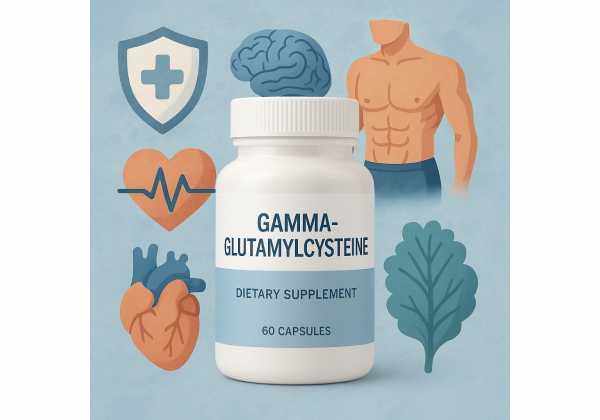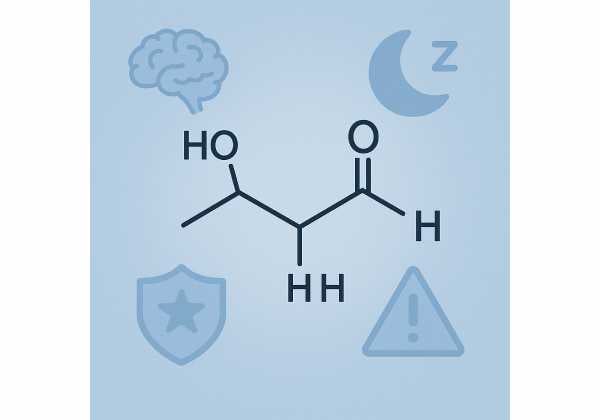Galacto-oligosaccharides: Health Benefits, How to Use, Optimal Dosage, and Safety
Galacto-oligosaccharides (GOS) are prebiotic fibers found in small amounts in some dairy products and made at scale from lactose. They pass through the upper gut undigested and become food for friendly bacteria—especially Bifidobacterium—in the colon. This selective feeding can improve stool regularity, ease minor constipation, and support the gut barrier. Modern studies also explore GOS for immune balance and...
Galactose: What It Is, Evidence-Based Benefits, How to Use It, and Risks
Galactose is a simple sugar (a monosaccharide) best known as one half of lactose, the milk sugar. Beyond being an energy source, galactose is essential for building glycoproteins and glycolipids—the “sugar coats” that help cells signal, stick, and defend themselves. In everyday diets, most people obtain galactose naturally from dairy and fermented dairy foods. As a stand-alone supplement, however,...
Galangal: Health Benefits, How to Use It, Proper Dosage, and Safety
Galangal (Alpinia galanga), often called “Thai ginger,” is a fragrant rhizome used in Southeast Asian cooking and traditional medicine. Beyond its peppery, citrusy flavor, galangal contains bioactive compounds such as 1′-acetoxychavicol acetate (ACA), 1,8-cineole, and flavonoids that are being studied for digestive support, antimicrobial action, inflammation modulation, and cognitive performance. Early human trials suggest standardized galangal extracts may sharpen...
Galantamine: Uses for Alzheimer’s, Dosing Guidelines, Side Effects, and Interactions
Galantamine is a prescription medicine used to treat symptoms of mild to moderate Alzheimer’s disease. It belongs to a group of drugs called acetylcholinesterase inhibitors, which help nerve cells communicate by increasing acetylcholine—a chemical important for memory and attention. When taken and titrated correctly, galantamine can modestly improve or slow decline in cognition, daily functioning, and behavior for some...
Galbanum: What It Is, Evidence-Based Benefits, How to Use It, Dosage, and Risks
Galbanum is a fragrant oleo-gum-resin obtained mainly from Ferula species native to Iran and neighboring regions. Distilled into a sharp, green essential oil or processed into a smooth balsamic resinoid, it has a long history in perfumery, incense, and traditional medicine. Today, people explore galbanum for its distinct aroma, skin-care potential when properly diluted, and its antimicrobial actions observed...
Galega officinalis benefits, glucose support, dosage, and safety explained
Galega officinalis—also called goat’s rue or French lilac—is a traditional European herb best known for inspiring the modern diabetes drug metformin. The plant contains guanidine derivatives such as galegine that can influence glucose handling, though clinical evidence for the whole herb remains limited. Today, people most often encounter Galega in teas, tinctures, or capsules marketed for metabolic support or...
Galium aparine for urinary comfort and lymph support: uses, dosing, and side effects
Galium aparine—better known as cleavers, goosegrass, or catchweed—is a springtime hedgerow herb with tiny hooks that cling to clothing and fur. In traditional European and Asian practices, it is brewed or juiced as a gentle diuretic and “lymph-supportive” tonic, and used topically for minor skin irritation. Modern lab and animal studies point to a rich profile of iridoids, chlorogenic...
Gallic acid: Antioxidant Benefits, Uses for Skin and Metabolic Health, Dosage, and Side Effects
Gallic acid is a naturally occurring phenolic compound found in tea, berries, grapes, walnuts, and oak galls. It is best known for strong antioxidant and anti-inflammatory activity and is widely studied for metabolic, cardiovascular, neuroprotective, and skin health applications. In foods, it helps prevent oxidation; in supplements and skincare, it targets oxidative stress and irritation. Early human data suggest...
Galphimia glauca: Evidence-Based Benefits for Anxiety and Stress, Proper Dosage, and Side Effects
Galphimia glauca—known locally in Mexico as thryallis or “calderona amarilla”—is a small shrub whose golden flowers hide an unusual group of triterpenes called galphimines. Among them, galphimine-B has drawn clinical attention for easing symptoms of generalized and social anxiety without the heavy sedation seen with some conventional medicines. Standardized extracts have been compared with lorazepam and alprazolam in controlled...
Gambhari: Evidence-Based Benefits, How to Use It, Proper Dosage, and Side Effects
Gambhari (Gmelina arborea) is a fast-growing deciduous tree native to South and Southeast Asia and a classical herb in Ayurveda. Traditionally grouped within the Dashamoola (“ten roots”), it is valued for soothing inflamed tissues, easing musculoskeletal pain, supporting urinary flow, and restoring strength during convalescence. Modern phytochemical analyses identify phenylpropanoid glycosides (like verbascoside), lignans (such as gmelinol), and iridoids—compounds...
Gambir: What It Is, Proven Properties, Safe Dosage, and Who Should Avoid It
Gambir (Uncaria gambir), also called gambier, is a traditional extract made from the leaves and young twigs of a tropical vine in the coffee family. It is rich in plant polyphenols—especially catechins and related tannins—that give it strong astringent, antioxidant, and antimicrobial properties. Historically used across Southeast Asia for oral care, sore throats, and digestive upset, gambir is now...
Gamboge: What It Is, How It Works, Proper Use, Dosage Details, and Safety Considerations
Gamboge is the deep yellow resin obtained mainly from the tree Garcinia hanburyi (often called Siamese gamboge). Long known as a coloring agent, the resin also contains bioactive “caged xanthones,” primarily gambogic acid (GA) and gambogenic acid (GNA). In laboratories, these molecules show anticancer, anti-inflammatory, and antimicrobial actions. Yet the raw resin is a harsh purgative and has a...
Gamma-aminobutyric acid: Sleep Benefits, Stress Relief, How to Use, Dosage, and Safety
Gamma-aminobutyric acid (GABA) is the brain’s primary calming neurotransmitter. As a supplement, it’s marketed to help you unwind, sleep more easily, and manage day-to-day stress. Research suggests oral GABA may shorten the time it takes to fall asleep, improve aspects of sleep quality, and reduce markers of stress in some people. Effects likely arise from a mix of gut–brain...
Gamma-butyrolactone: Risks, Overdose Signs, Interactions, and Safer Alternatives Explained
Gamma-butyrolactone (GBL) is an industrial solvent that the body rapidly converts into gamma-hydroxybutyrate (GHB), a powerful central nervous system depressant. Despite its reputation in some circles as a “supplement,” GBL is not approved for wellness uses and carries a narrow margin between desired effects and overdose. People encounter it in nightlife settings, as an adulterant, or through online markets...
Gamma-glutamylcysteine: Raise Glutathione Naturally—Benefits, Dosage, and Risks
Gamma-glutamylcysteine (GGC) is a small dipeptide your body naturally makes as the immediate precursor to glutathione—the ubiquitous cellular antioxidant that safeguards proteins, lipids, and DNA. Interest in GGC is rising because taking it may bypass the rate-limiting step in glutathione synthesis and support low glutathione states linked with aging and oxidative stress. Early human data show that single oral...
Gamma-hydroxybutyrate (GHB): Uses in Narcolepsy and Idiopathic Hypersomnia, Proper Dosage, and Side Effects
Gamma-hydroxybutyrate (GHB) is a naturally occurring neurochemical and a powerful central nervous system depressant. In medicine, its prescription form—oxybate—is used under strict supervision to treat narcolepsy with cataplexy, excessive daytime sleepiness, and idiopathic hypersomnia. Unlike many sleep-related products marketed as supplements, GHB is not an over-the-counter aid; it is a controlled prescription therapy with significant safety requirements and a...




















